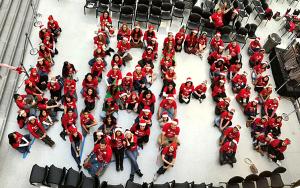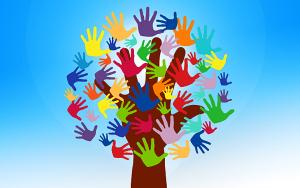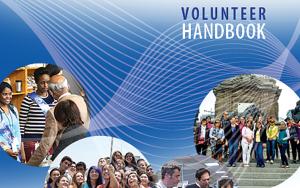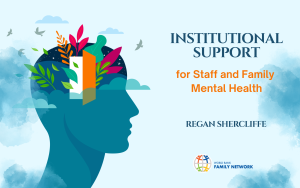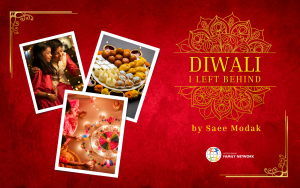Moving to a new country can be a daunting experience. Information you can gather through books and the internet, cannot replace first hand experience as shared below by WBFN members. If you are already in the Country Office and have some additional experience/tips you would like to share, please contact the WBFN Local Champion or the WBFN office and we will be glad to amend our members' recommendation for this specific country accordingly. WBFN is happy to share—but cannot endorse—information provided by members [consult WBFN Legal]. You have to be a registered WBFN member in order to access the information below; please log in/register
Special Announcement
-
Please register with WBFN by Clicking Here to become a new member, update current membership or create your website account. To access restricted content you must be a registered WBFN member with an active website account
-
50th Anniversary
-
50th Anniversary Monthly Webinars
- WBGFN – Past Present and Future
- WBGFN – Welcome and Support at HQ Part - 1
- WBGFN – Welcome and Support Part -2, Welcoming Worldwide
- WBGFN - Welcome and Support Part -3 Career
- WBGFN – Cultivating a Flourishing Family Abroad
- Nourishing Global Families Part 1 - Demystifying Raising Global Teens
- Nourishing Global Families Part 2: Education Advocacy For Children and Families Navigating a Global Lifestyle
- Nourishing Global Families Part 3: What does it mean to be a distance son or daughter?
- Competitions
- Men's Workshops Real Talk, Real Bonds
-
50th Anniversary Monthly Webinars
-
Get Involved
-
Support
- News & Views
-
Activities
- About
Members' Recommendations
Members Recommendations
- 1. When arriving
- 2. Short term housing
- 3. Neighborhoods
- 4. Schools and daycares
- 5. Security
- 6. Healthcare providers & emergencies
- 7. Shopping
- 8. Recreational activities
- 9. Useful Resources/Books
- 1. When arriving
- 1.1 What to bring with you
Life in Sydney is expensive and being a remote destination, you may not find all the brands you are used to. You will find the items listed below but be prepare the spend more money and get less choice:
- Clothes (especially children clothes)
- Outdoor equipment (camping, sport)
- Decorative items
One of the main and most popular option for short-term accommodations is the Meriton chain: www.meritonapartments.com.au
For the Eastern suburbs, the following options have good feedback:
- - Adina Hotels in Coogee (www.tfehotels.com)
- - Coogee View Executive Apartments (www.aeahotels.com)
Scroll Up - 2. Short term housing
Most of the available houses/apartments can be found at:
The system tends to favor the landlord but tenants have rights and you can find details at :
Housing market is tough in Sydney.
There are very few offers and price are extremely high.
Renting price is advertised per week. Payments are often made twice a month.
Landlords tend to prefer short lease (less than a year). If you really like the house you have chosen try to negotiate the longest lease period you can...one of the big issue in Sydney that tenants have to face is to move after only a short period when landlord decide to sell. Many expats end up having to move every year.
Many houses do not have heating system, keep in mind that although Sydney's winter can't be compare with DC's one, temperatures can be chilly. You have to decide if a heating system is a priority for you.
- Isolation (heat/cold and noise) is usually pretty bad.
- You can be outside from October to April in Sydney, a terrace or garden can be a nice added value.
- Electricity is expensive as opposed to gas and water.
- Surprisingly there is little choice for Internet providers; it's expensive and not always reliable depending on where you live. It is recommended to choose between the two main ones: Optus and Telstra. You can compare the rates and offers at www.broadbandguide.com.au
Scroll Up - 3. Neighborhoods
If you have children, you will choose your neighborhood depending on the school your children are registered at. Depending on this choice you will live either North or South Shore of Sydney. There is some traffic in Sydney and the city is quite spread. The World Bank Office is in the CBD, it can be easily accessed from the closest part of the North Shore and the Eastern suburbs.
Once you have moved, you can ask to the council of your neighborhood a "New Resident's kit", it does give a lot of useful local information.
Scroll Up - 4. Schools and daycares
The Australian public school system is good and free, you also have many private schools to choose from, Australian or international (French, German, Japanese....). Keep in mind that the South hemisphere calendar is different from the North hemisphere one!
Public schools do welcome children from 5 years old. Children younger than 5 can attend private day care. There is a lot of choice but it's pricey (around $110 per day from 9 to 3pm). Nannies and au pairs can also be hired.
Scroll Up - 5. Security
Sydney is a very safe city. Basic precaution should be taken as in any other big city but security is not an issue.
Scroll Up - 6. Healthcare providers & emergencies
- Police, fire, ambulances number: 000
- Poison center: 131 126
- For children emergencies: Children's Hospital www.sch.edu.au (029382111).
Very good health system but very expensive.
Nature here is very powerful and one should be aware of some of the specific dangers in Australia, including Sydney:
* Spiders: some are mortal as the Sydney Funnel-web.
- For more information: www.spiders.com.au
- It is very common to have a pest control being done at home (including garden) at least once a year.
*Drowning: a lot of Sydney's beaches are dangerous because of the rip currents. Always respect the Surf Live Savers instructions, swim between the flags. For more information: www.sls.com.au and www.ripcurrents.com.au
*Sharks are regularly spotted but Life Savers are monitoring closely the beaches.
*Sun!!: The skin cancer rate is specifically high in Australia and all Australians take this risk very seriously. Protection against the sun is highly recommended and there is a "no hat, no play" policy at schools.
Scroll Up - 7. Shopping
Coles and Woolworths are the 2 mains supermarkets.
Farmers markets can be found all around Sydney especially during the WE: Bondi Farmers Market (www.bondimarket.com.au), Bondi Junction Village Markets, Sydney Sustainable Market (www.sydneysustainablemarkets.org), Double Bay Organic Market (www.organicfoodmarkets.com), Carriageworks Market (www.carriagekworks.com.au), EQ Village Markets (www.eqmoorepark.com.au), Randwick Farmers Market. You can get more information at www.localmarketguide.com.au.
Organic products are rare but some can be found at About Life, Earth Food Store, The Health Emporium, Lettuce Deliver, Taste Organic and Scoop Wholefood.
There are good butcheries and fisheries in every neighborhood.
A lot of Asian products can be found. The main Asian supermarket is Thai Kee.
Scroll Up - 8. Recreational activities
There are many festivals including:
- St George Open Air Cinema (www.stgeorgeopenair.com.au) in January and February. Watching a great movie with the Opera as a background. Fantastic.
- Vivid Sydney is an annual outdoor lighting festival with immersive light installations and projections in Sydney. Not to be missed. In May/June. (www.vividsydney.com)
- 8.1 Restaurants
If you look for a good restaurant, have a look to The Goodfood Guide published by the Sydney Morning Herald. Sydney's food scene is always improving and all nationalities are represented.
A lot of restaurants do welcome children and offer kids menu.
- 8.2 Nightlife
The cultural offer is good with several museums or private galleries including:
- Art Gallery of NSW (www.artgallery.nsw.gov.au)
- Museum of Contemporary Arts (www.mca.com.au)
- White Rabbit Gallery
- 8.3 Sports Clubs/Country Clubs
If you enjoy sport, you'll love Sydney!
Sydney is a real paradise for sea enthusiasts. Locals do surf, swim, paddle, fish, snorkel, dive...the list is endless!
Beaches are everywhere....some are best for surf, some for swimming, some for snorkeling...Beaches are super well equipped with showers/toilet and BBQ! Enjoy a swim in the many rock pools of Sydney...a local curiosity not to be missed.
It's also very easy to find a rugby or soccer team, to run on trails, play tennis, play golf (with sea views)...Many activities for adults or kids.
Register your kids to the nippers to experience the aussie way! http://surflifesavingsydney.com.au/nippers/
- 8.4 Weekend getaways
It's easy to escape for a week-end or more.
- Go hiking to the Blue Mountains (1.30 hours drive)
- Go whale watching at Port Stephens (3h drive)
- Walk on the whitest sand ever at Jervis Bay (2hours drive)
Scroll Up - 9. Useful Resources/Books
- Official website of Sydney: www.cityofsydney.nsw.gov.au
- Time Out Sydney: www.timeout.com/Sydney
- What's On Sydney: whatson.cityofsydney.nsw/com/au
- Week End notes: www.weekendnotes.com/sydney
Resource for kids:
- Sydney's child (www.sydneychild.com.au)
- Kid Spot (www.kidspot.com.au)
- Ella's list (www.ellaslist.com.au) for ideas and activities in the Eastern Suburbs
Scroll Up

